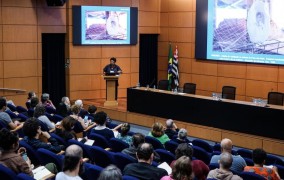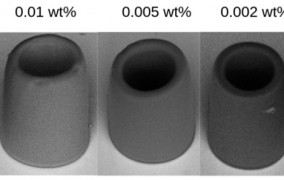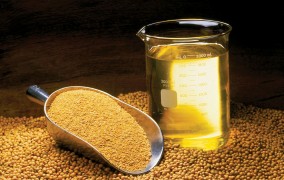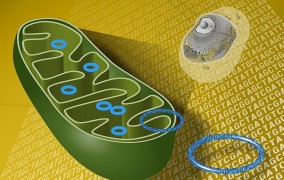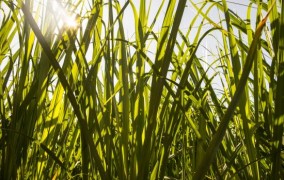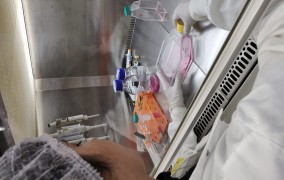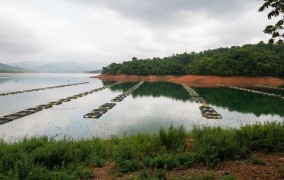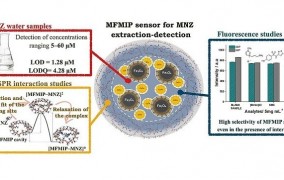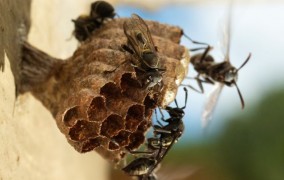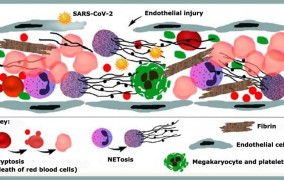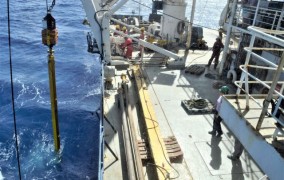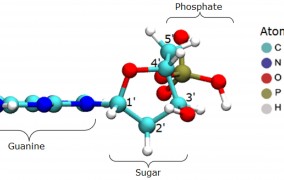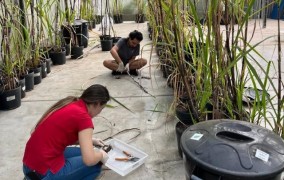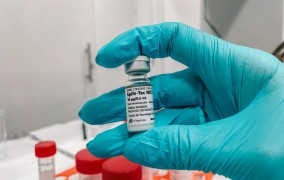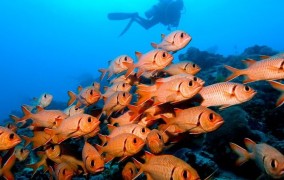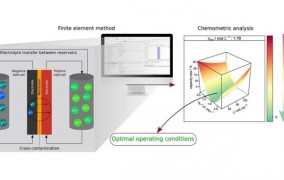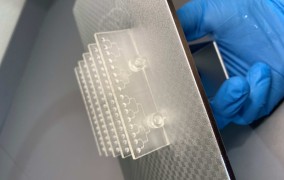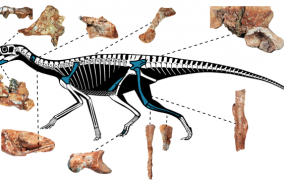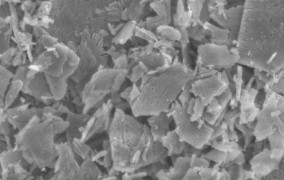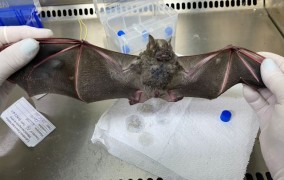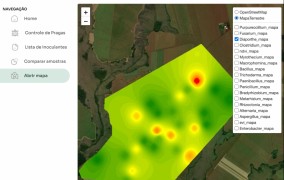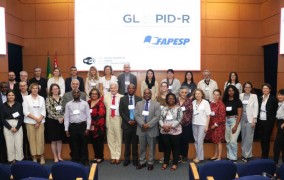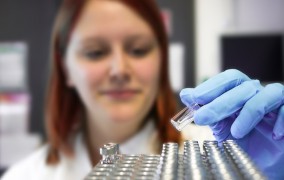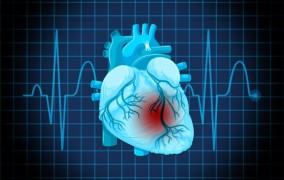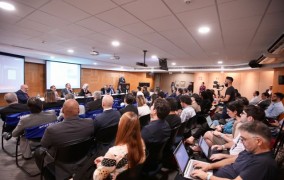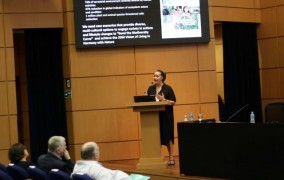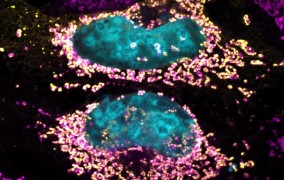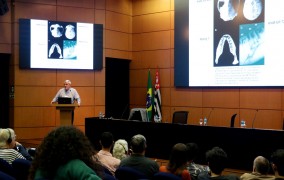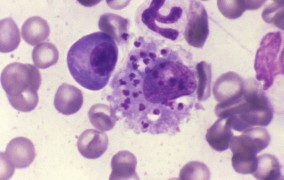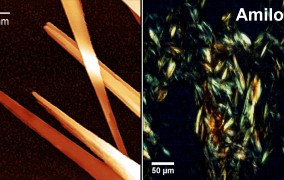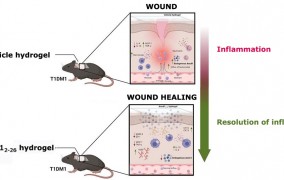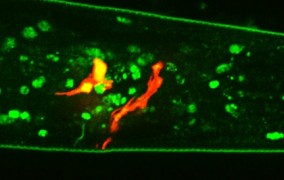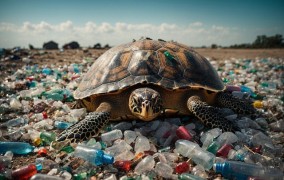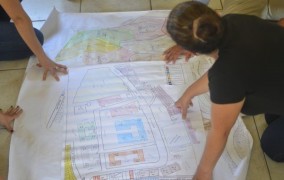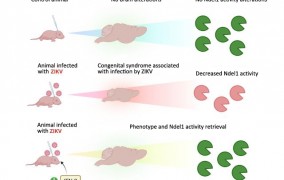
News
-
The art of Rosana Paulino lays bare the trauma of slavery in Brazil
2023-12-13The artist outlined her life’s work in the Eighth FAPESP 2023 Lecture, which was entitled “Roots that emerge: interweavings of art and science”. -
Embedding nanodiamonds in polymer can advance quantum computing and biological studies
2023-12-13Researchers at the University of São Paulo’s São Carlos Institute of Physics developed the technique, which can be used in information processing and cell marking, among many other applications. -
Study paves way for development of advanced quantum networks
2023-12-12This research carried out at the State University of Campinas focused on the use of nanometric optomechanical cavities as bridges between superconducting circuits and optical fibers, with applications in computing and quantum communications. -
Soybean oil production residue can be used to make a product that treats symptoms of menopause
2023-12-11Scientists in Brazil have tested a method to obtain a substance similar to estrogen from soy isoflavones. They aim to create a product that reduces the discomfort suffered by many women in the menopause. -
Long COVID is linked to persistent damage to mitochondria, the ‘powerhouses’ of our cells
2023-12-11Infection by SARS-CoV-2 can suppress the expression of mitochondrial genes involved in production of ATP cell fuel in many vital organs. The discovery paves the way to a search for strategies to restore mitochondrial function. -
New RIDC will work to reduce greenhouse gas emissions and increase carbon sequestration in agriculture
2023-12-06The Center for Carbon Research in Tropical Agriculture (CCARBON) is a Research, Innovation and Dissemination Center (RIDC) supported by FAPESP and hosted by the University of São Paulo’s Luiz de Queiroz College of Agriculture (ESALQ-USP). It was officially launched on November 17 and aims to make food, fiber and energy productivity part of the solution to the climate crisis. -
Copaiba oil nanoemulsion found to have antiviral potential against zika
2023-12-06Results of tests with the substance pave the way for the development of medications or specific vaccines against zika, for which there is currently no treatment. The number of cases rose 20% year on year in the first seven months of 2023. -
FAPESP-supported research center embarks on program of digital inclusion in ten Brazilian municipalities
2023-12-06Hosted by the Brazilian Agricultural Research Corporation (EMBRAPA), the new center will establish Agricultural Technology Districts in which to conduct research, development and innovation activities in emerging technologies. The initiative has the potential to reach 14,000 small and medium rural properties. -
Brazilians create sensor to monitor levels of widely used antibiotic in water and food
2023-12-06The device, which combines magnetic fluorescent nanoparticles, was designed at the Center for Development of Functional Materials, a research center supported by FAPESP and hosted by the Federal University of São Carlos. -
Biopesticide is harmless to mammals but can wipe out colonies of wasps that benefit plants
2023-12-06Albeit less lethal than synthetic insecticides, this fungus-based substance is not detected by social insects and can spread spores to entire nests, threatening the survival of species that play a key role in pest control and pollination. -
New study proves that severe COVID-19 is a thrombotic disease
2023-12-05In an article published in the Journal of Applied Physiology, researchers at the University of São Paulo show that damage to small blood vessels in the lungs caused by SARS-CoV-2 is the main factor underlying severe COVID-19. -
Research group plans to map potential for hydrogen production in sugar and ethanol industry
2023-12-04The goal is to produce sustainable aviation fuel from sugarcane biomass and ethanol. -
Analysis of carbon cycle during last glacial period can help monitor climate crisis
2023-11-29A study conducted in Brazil analyzed marine sediments to investigate gas exchanges between the ocean and the atmosphere in the recent past. The researchers concluded that a rise in the temperature of the South Atlantic caused a release of CO2 trapped at the bottom of the Southern Ocean. -
Cognitive training can improve the quality of everyday life
2023-11-29Technology developed by a startup supported by FAPESP has been used to improve the performance of athletes like soccer goalkeeper Ederson, who plays for Manchester City and Brazil’s national side, and to reduce the number of accidents caused by human error in the petrochemical and meatpacking industries. -
Researchers profile pollutants present in an important river basin in São Paulo state, Brazil
2023-11-29Scientists at the State University of Campinas analyzed samples taken at 15 points in the basin comprising the Piracicaba, Capivari and Jundiaí Rivers, and detected 45 contaminants, including compounds from agricultural, industrial and household effluents not yet regulated by Brazilian legislation. -
Study elucidates how ionizing radiation damages DNA
2023-11-29The research focused on the damage done to DNA indirectly by oxidizing chemical species such as the hydroxyl radical. -
FAPESP participates in international summit on poles and glaciers in France
2023-11-29The One Planet Polar Summit was attended by people from over 40 countries, including researchers, experts, members of business enterprises and nonprofits, and representatives of Indigenous Peoples. -
FAPESP strengthens research collaboration with Italy
2023-11-29Senior executives of the foundation visited leading Italian universities and scientific institutions with the aim of increasing collaboration. -
Review article shows key role of Brazil in research on sugarcane for bioenergy
2023-11-27The study by researchers at the University of São Paulo also shows that genetic engineering techniques need to be improved in order to increase ethanol production without expanding crop acreage, a strategy considered crucial to the effort to cope with climate change. -
A Brazilian vaccine may be the ideal choice for annual vaccination campaigns against COVID-19
2023-11-22Called SpiNTec, the vaccine can induce a more lasting immune response and should be more effective than vaccines currently available in Brazil against variants of the novel coronavirus SARS-CoV-2, according to the leader of the local vaccine development project, who took part in the FAPESP 2023 School in Exact and Natural Sciences, Engineering and Medicine. -
‘Science must go into corner stores, bars and homes,’ urges Brazilian astronomer who works with NASA
2023-11-22On a visit to São Paulo to participate in the FAPESP 2023 Interdisciplinary School in Exact and Natural Sciences, Engineering and Medicine, astrophysicist Duília de Mello argued that science popularization can combat epistemic bubbles. -
FAPESP and the University of São Paulo are participating in the Ocean Pavilion at COP28 in Dubai
2023-11-22A group of organizations led by Woods Hole Oceanographic Institution (WHOI) and the University of California San Diego’s Scripps Institution of Oceanography have established an online platform to raise the visibility of the ocean and highlight its importance to climate negotiations and life on the planet. -
Researchers obtain promising results against capacity loss in vanadium batteries
2023-11-22A computational study conducted by the Center for Development of Functional Materials at the Federal University of São Carlos (UFSCar) in Brazil could help extend the working lives of these batteries, which are widely used by utilities and manufacturers. -
Quick test analyzes DNA to improve crops
2023-11-22A technological solution developed by a Brazilian startup with FAPESP’s support detects microorganisms that cause disease in eucalyptus, soybeans and other agricultural plants. They can be detected in grains, leaves and the air. -
New fossil assemblage highlights complexity of classifying silesaurid phylogeny
2023-11-21The fossil assemblage was found in the state of Rio Grande do Sul, one of Brazil’s richest paleontological regions. The bones belonged to animals that lived between 247 million and 208 million years ago. It is difficult to confirm they can be considered species of dinosaur. -
Biomaterial developed at São Paulo State University proves capable of accelerating bone regeneration
2023-11-21In vitro experiments showed cobalt-doped calcium phosphate to be capable of stimulating bone cell differentiation by mimicking a low-oxygen environment. Next steps include animal testing. -
Identified a star capable of forming a magnetar, the most powerful type of magnet in the Universe
2023-11-15A little smaller than the Sun but ten times as hot, it will go supernova and become a neutron star with a magnetic field 100 trillion times stronger than Earth’s. -
In Northeast Brazil, rabies virus variants from marmosets are found in bats
2023-11-15The emergence of rabies in distinct wildlife species is a potential source of human infection and poses life-threatening risks. As the researchers responsible for the discovery warn, anyone who comes into contact with these animals should alert the authorities. A 36-year-old farm worker died in May, only weeks after being bitten by a marmoset. -
The crucial role of biofuels in the energy transition is explained in an encyclopedic new book
2023-11-15Written by two experts on biofuels, Luís Augusto Barbosa Cortez and Frank Rosillo-Calle, the book explores Brazil’s experience and how other countries can learn from it in the context of climate change. -
Platform identifies soil microorganisms that cause disease
2023-11-15Technology developed by the startup ByMyCell with the support of FAPESP helps farmers make decisions that boost yields and reduce the use of agrochemicals. -
Global funders of health-related research discuss epidemic and pandemic preparedness guidelines
2023-11-15The Ninth General Assembly of the Global Research Collaboration for Infectious Disease Preparedness, representing funding agencies, research institutions and government bodies from around the world, was held at FAPESP in São Paulo, Brazil, on October 24-25. -
Novel method facilitates study of oxidized lipids involved in neurodegenerative diseases
2023-11-14Scientists at the University of São Paulo’s Center for Research on Redox Processes in Biomedicine used a novel technique they themselves developed to identify altered molecules in an animal model of amyotrophic lateral sclerosis (ALS). -
Molecule tested at University of São Paulo proves able to mitigate heart failure
2023-11-08Results of trials involving animals, cell cultures and human heart tissue are reported in the European Heart Journal. The study was conducted by researchers at USP in partnership with a biopharmaceutical firm, offering hope to 2 million Brazilians who suffer from the disease. -
El Niño, climate change and deforestation: scientists explain what may lie behind the drought in the Amazon
2023-11-08Brazil’s North region is experiencing the worst drought of the century, with severe social and economic impacts. The problem was discussed at an event hosted by FAPESP on October 17. -
New center will use data and artificial intelligence to support public safety policymaking
2023-11-08FGV Analytics is a partnership involving FAPESP, Getúlio Vargas Foundation, the University of São Paulo and the São Paulo State Department of Public Safety. Its mission includes fostering development of evaluation tools and evidence-based public policy. -
Customizable corporate training system uses technology, immersion and interactivity
2023-11-08The platform was developed by a startup supported by FAPESP. It uses an adult learning methodology that leverages motivational techniques and customization. -
South African researcher presents novel ways of thinking about the relations between society and ecosystems
2023-11-08Laura Maureen Pereira delivered the Seventh 2023 FAPESP Lecture on “Why we need transformative scenarios for people and nature”. -
Open data sharing is essential to pursuit of sustainability solutions
2023-11-08This was a consensus among representatives of funding agencies in the Americas who met virtually in October under the aegis of the Global Research Council. A previous event discussed funding for research relating to artificial intelligence in Latin America. -
Study reveals bacterial protein capable of keeping human cells healthy
2023-11-08An article published in PNAS by Brazilian and Australian researchers describes a hitherto unknown protein with anti-oxidizing properties secreted by Coxiella burnetii, a Gram-negative intracellular bacterium, pointing to possible treatments for auto-immune diseases and even cancer. -
“We are not so much trying to improve our understanding of human evolution as trying to reduce our ignorance about it”
2023-11-01This is how Bernard Wood, one of the foremost paleoanthropologists alive, summed up his philosophy in the Sixth 2023 FAPESP Lecture. -
Research funding disbursed by FAPESP rose 16.7% in 2022 compared with the previous year
2023-11-01FAPESP increased research funding opportunities by creating new programs and new partnerships, according to its 2002 Annual Report. -
Novel portable device weighing less than 1 kg helps harbor pilots maneuver large vessels into port
2023-11-01High-precision maneuvering support system with integrated hardware and software developed by a startup supported by FAPESP transmits dynamic information in real-time via a smart platform. -
Test detects co-infection by novel species of parasite in severe cases of visceral leishmaniasis
2023-11-01The test developed by Brazilian researchers accurately identifies the causative agent in less than two hours, so that treatment can be properly targeted. Brazil is seeing a growing number of cases of co-infection by protozoans Leishmania infantum and Crithidia. -
Chemical process makes peptide acquire structure similar to amyloid plaques found in neurodegenerative diseases
2023-11-01Highlighted on the cover of the journal Biochemistry, a study by Brazilian researchers shows that a chemical change called pyroglutamination can occur spontaneously during peptide synthesis. The discovery has implications for laboratory experiments and research on Alzheimer’s, Parkinson’s and other diseases associated with the formation of amyloid aggregates. -
Better access to diagnostic tests raises incidence of thyroid cancer in more affluent areas
2023-11-01A study compared geographical and socioeconomic dimensions of the disease in São Paulo and the Barretos region. Incidence was far higher in the former but mortality rates were similar, suggesting overdiagnosis in specific areas and social groups. -
Hydrogel developed by Brazilian researchers improves skin wound healing in diabetics
2023-10-25The product, which contains the anti-inflammatory protein annexin A1, accelerated complete skin wound healing in mice, and has the potential to become part of the arsenal of treatments for a disease that affects 17.7 million Brazilians. -
Longevity may be associated with olfactory perception of harmful substances
2023-10-25In nematode worms exposed to a compound secreted by pathogenic bacteria, researchers observed activation of a neural circuit resulting in a longer lifespan and less protein aggregation, one of the causes of neurodegenerative diseases. The discovery paves the way for the development of treatments for age-related diseases. -
Products made of plastic falsely claimed to be biodegradable are on sale at Brazilian supermarkets
2023-10-25Researchers at the Federal University of São Paulo analyzed allegedly biodegradable plastic items sold by 40 supermarkets and found most to be oxo-degradables, banned in several countries because they contribute significantly to microplastic pollution. Bills currently before Brazil’s Congress would regulate the sale of such products. -
Method involving citizen participation is effective to address risks of environmental disaster
2023-10-25A research project showed that mobilizing citizens in flood-prone areas improves data collection and increases resilience. -
Study associates reduced activity of a key enzyme with microcephaly in zika-infected offspring
2023-10-25Brazilian researchers showed that brain activity of Ndel1, an enzyme that plays an important role in neuron differentiation and migration, decreased in mice infected by zika during pregnancy. The enzyme could become a biomarker for early diagnosis of the congenital syndrome associated with zika.
Most popular
-
Parents’ alcohol and drug use influences their children’s consumption, research shows
2026-02-13
-
Impact-formed glass evidence of cosmic collision in Brazil about 6 million years ago
2026-02-18
-
Second spider-parasitic mite described in Brazil
2026-01-05
-
Study reveals protein linked to spread of pancreatic cancer through nerves
2026-01-14
-
Babies exposed to poverty show delays in motor development as early as six months
2026-03-02
-
Study warns of nutritional risks of prolonged use of the drug omeprazole
2026-02-04
-
The ‘yo-yo effect’ impairs metabolism and reduces brown fat activity in women
2026-02-02
-
Research shows how immune system reacts to pig kidney transplants in living patients
2026-01-08
-
Artificial saliva containing sugarcane protein helps protect the teeth of patients with head and neck cancer
2026-01-07
-
Brazilian research reveals how some types of breast cancer ‘evade’ treatment
2026-01-21





